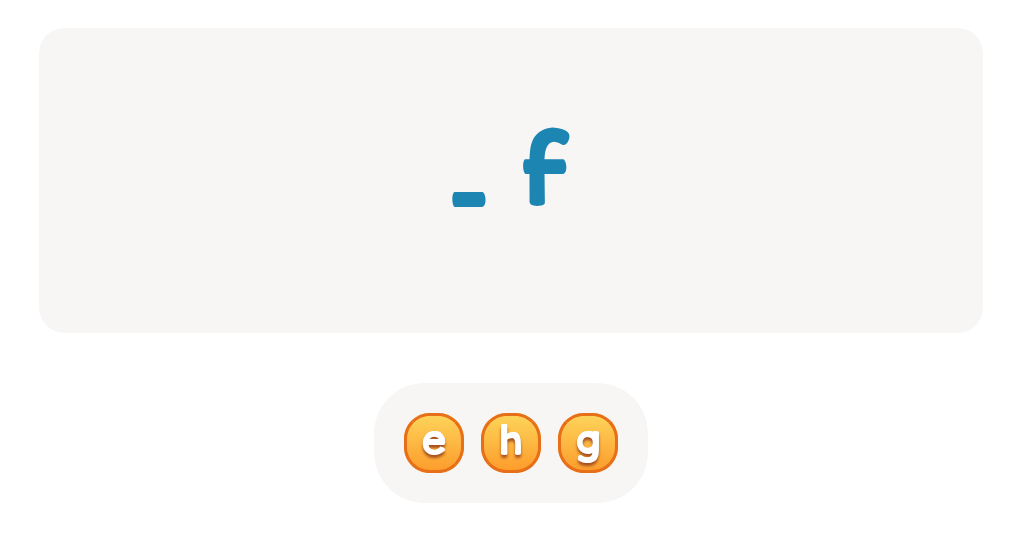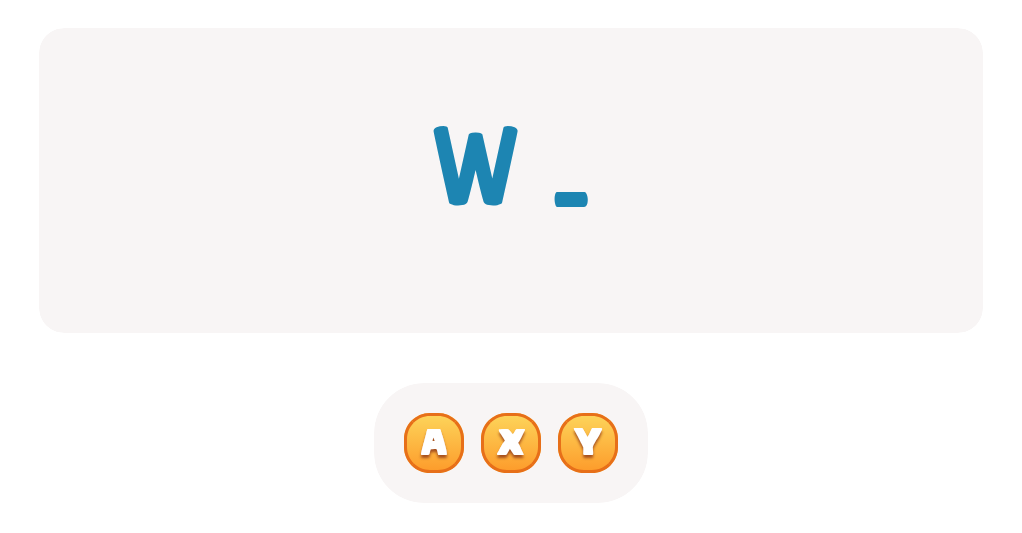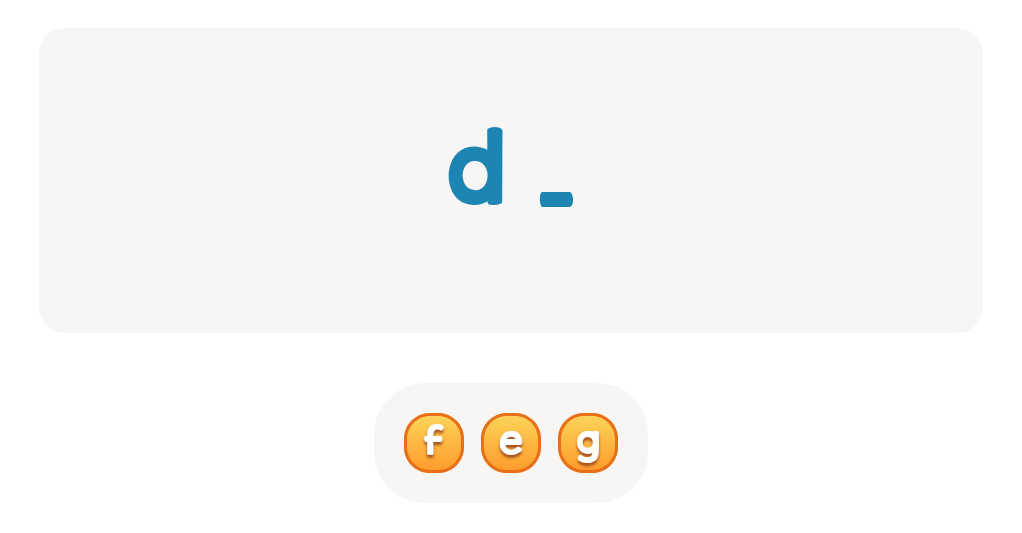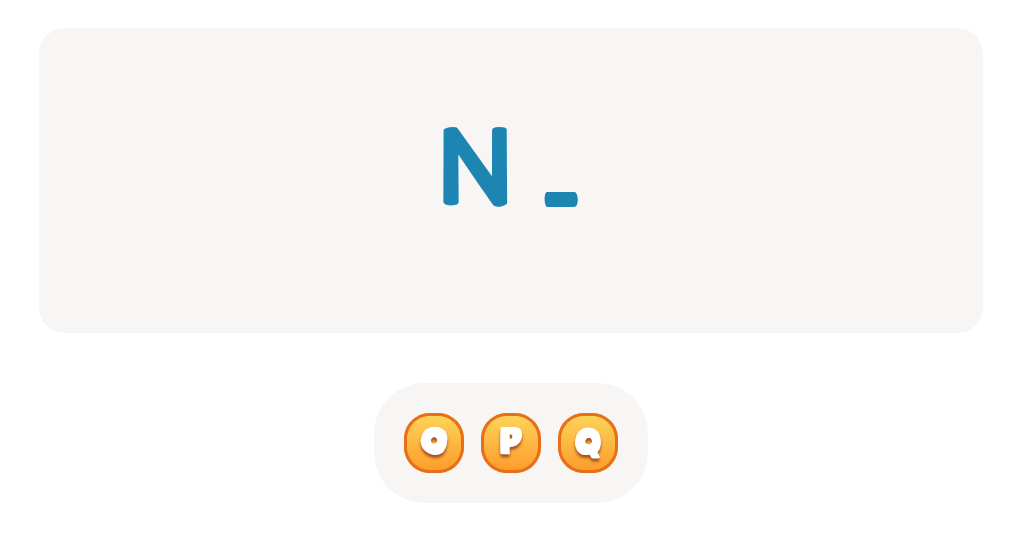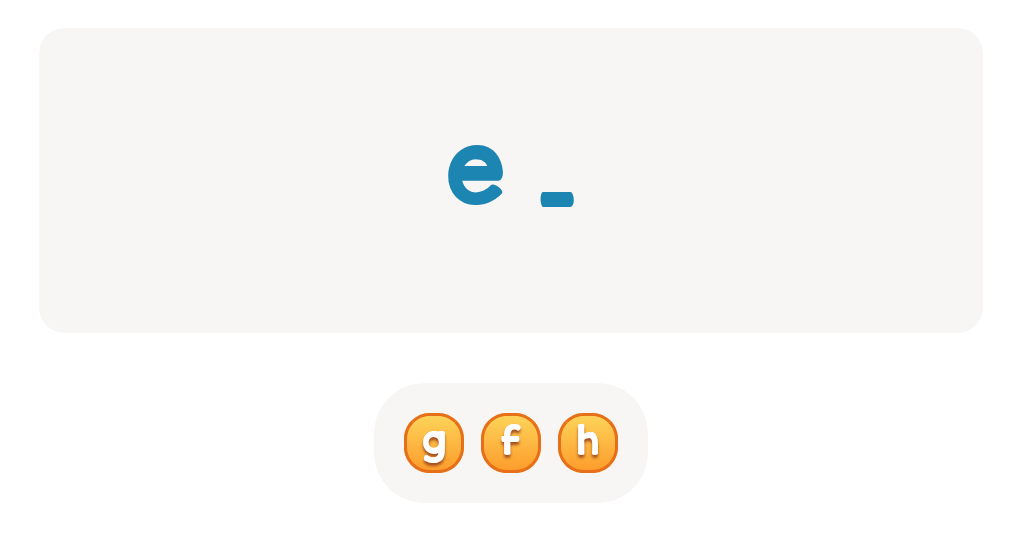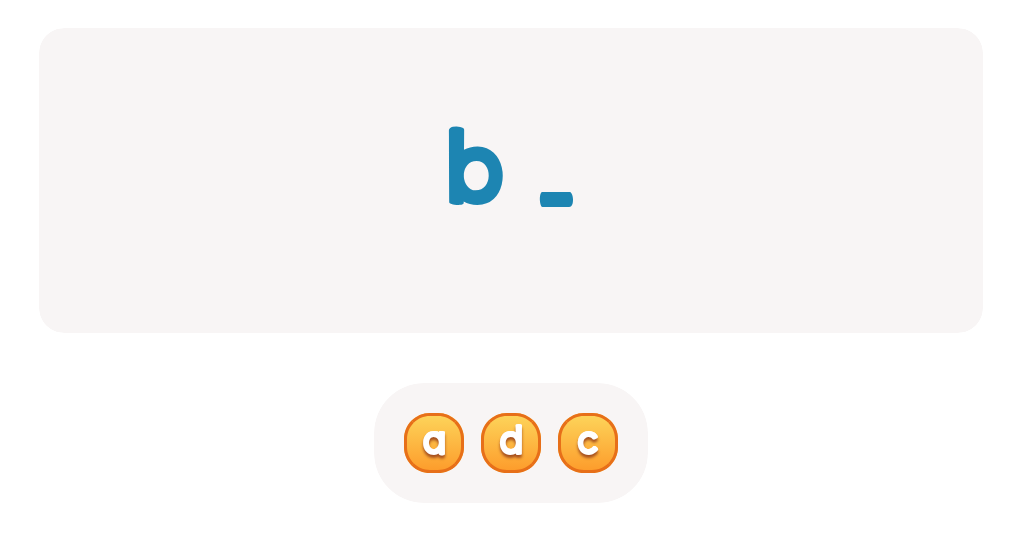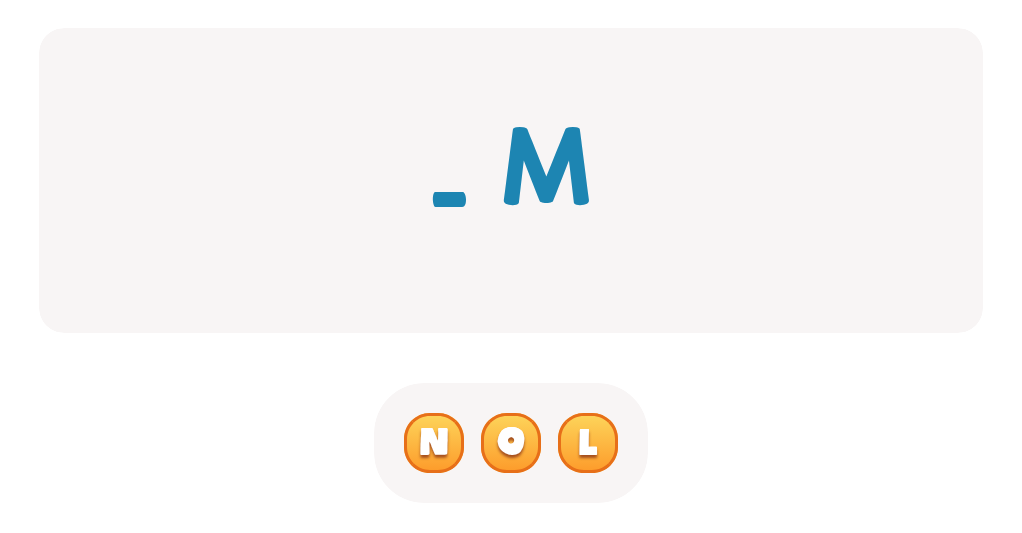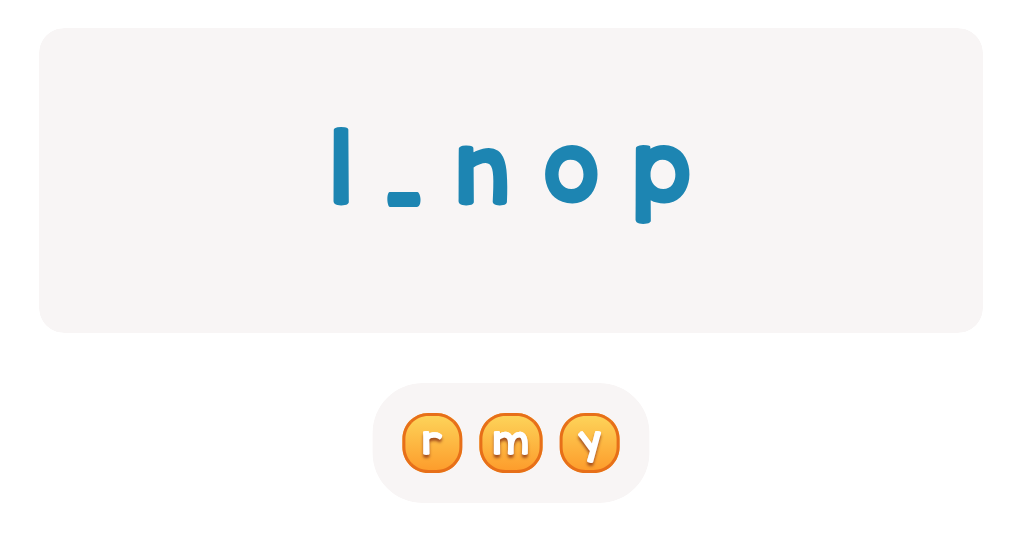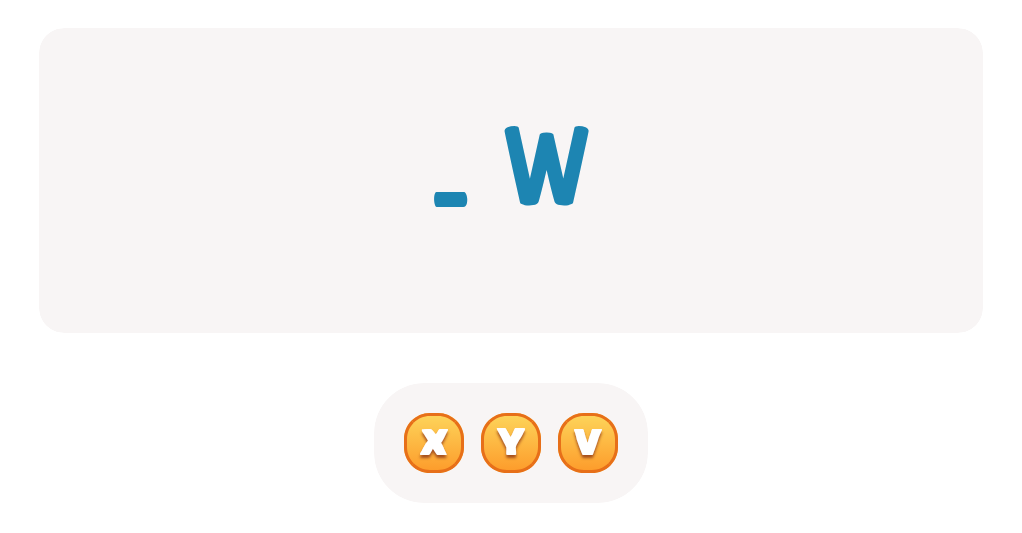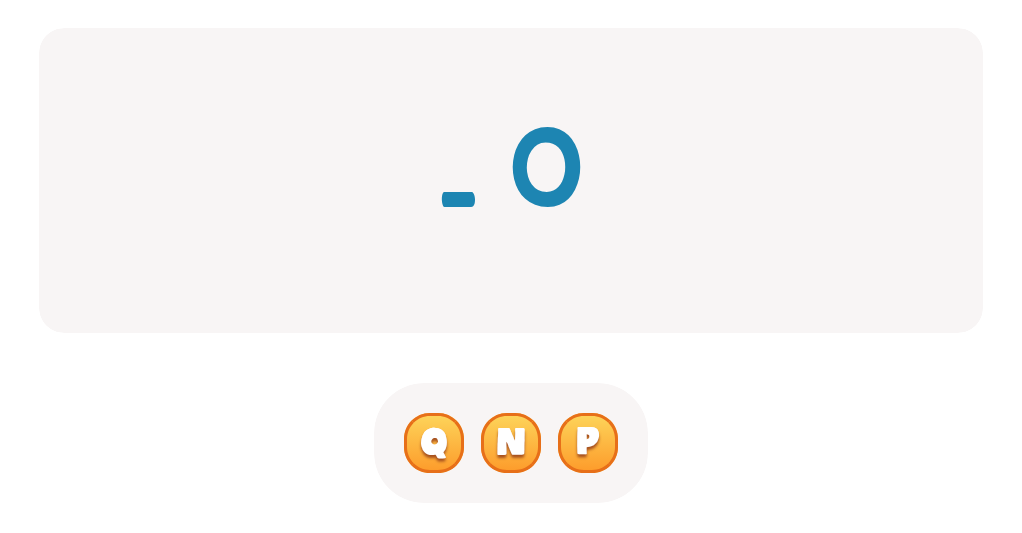Alphabet understanding ABC Letters Worksheets for Ages 3-5
5 filtered results
-
From - To
Our "Alphabet Understanding ABC Letters Worksheets" are designed for children ages 3-5 to develop foundational literacy skills. Through engaging, fun-filled activities, kids can recognize and write each letter of the alphabet, enhancing their early reading and writing abilities. These worksheets include various exercises such as tracing, matching, and letter identification to build alphabet knowledge in a captivating way. Ideal for preschoolers and kindergarteners, our intuitive worksheets support parents and educators in nurturing young learners' confidence and enthusiasm for learning the ABCs. Visit Kids Academy to download and start your child's alphabet adventure today!


Letter X Tracing Page
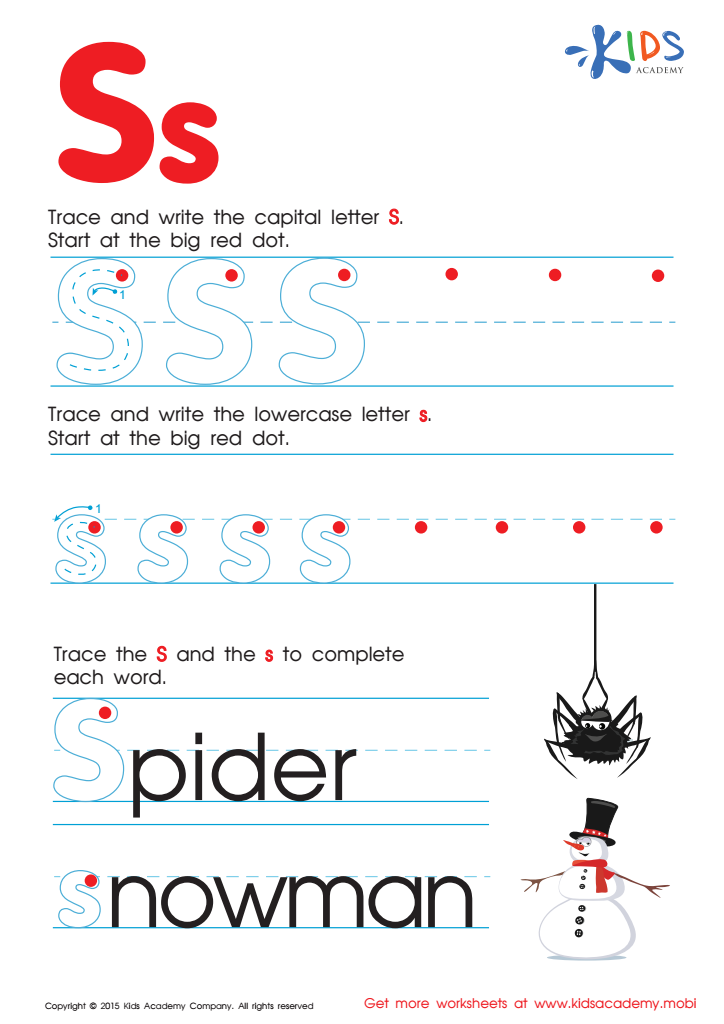

Letter S Tracing Page
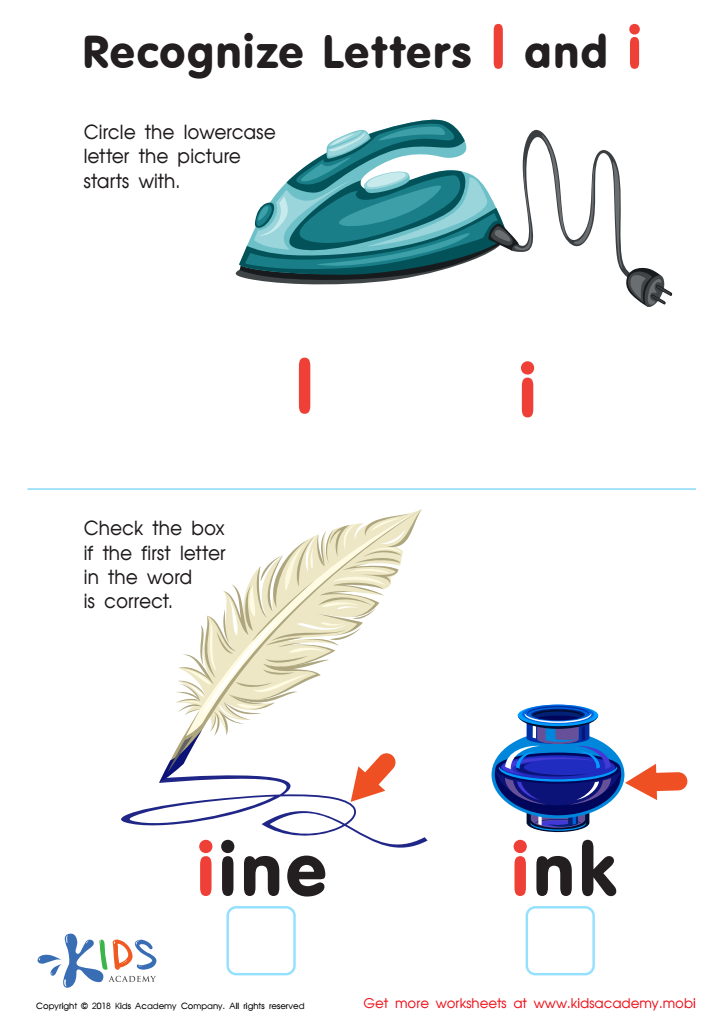

Recognize Letters l and i Worksheet
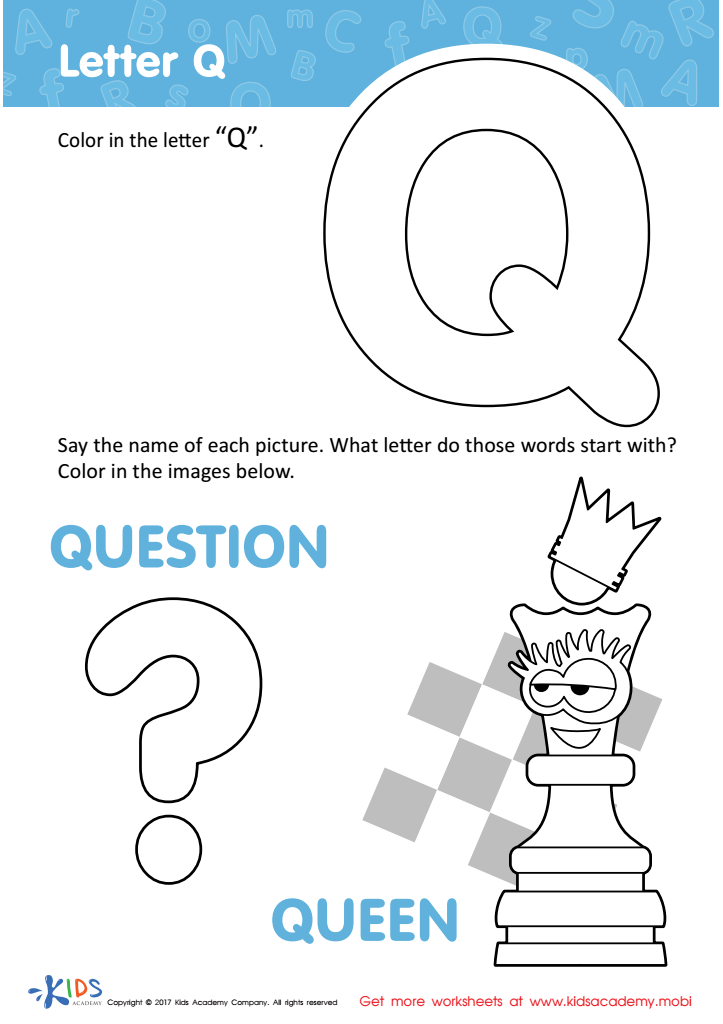

Letter Q Coloring Sheet
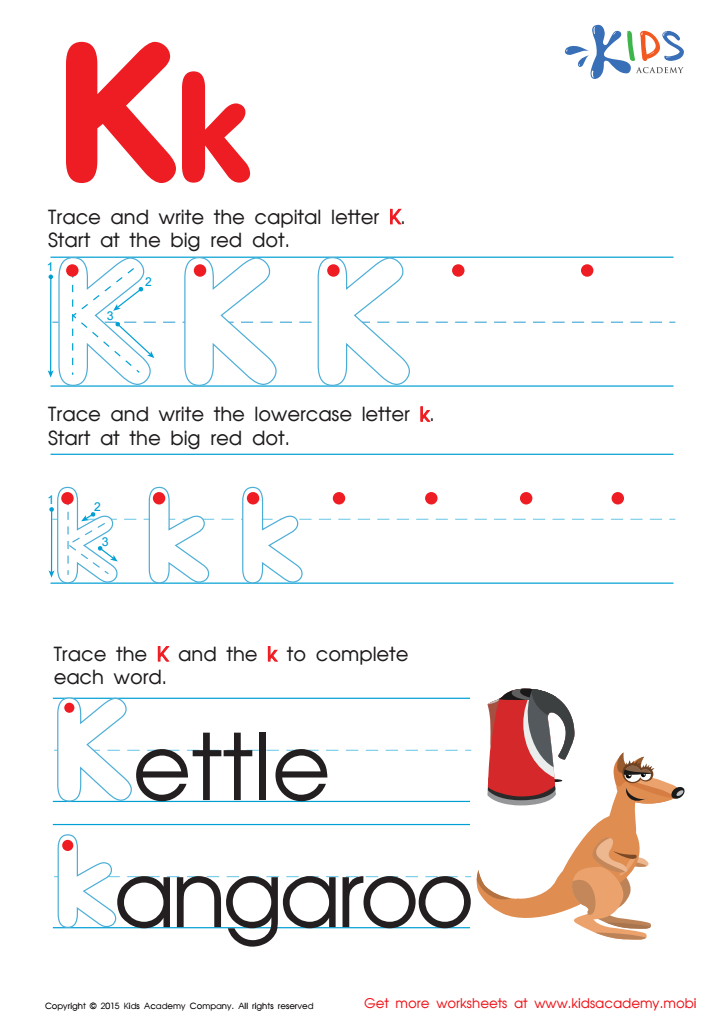

Letter K Tracing Page
Parents and teachers play a crucial role in a child's early literacy development, and one of the foundational skills they need to focus on is understanding the alphabet—particularly for ages 3-5. During this formative period, children are highly receptive to learning new concepts, and alphabet familiarity sets the stage for reading and writing skills.
Grasping the ABCs introduces children to the concept that letters represent sounds, which is essential for phonemic awareness. This understanding is a critical step toward decoding words, spelling, and eventually reading fluently. Moreover, alphabet knowledge enhances cognitive development by improving memory, concentration, and the ability to recognize patterns.
Furthermore, early alphabet comprehension improves fine motor skills as children learn to write letters. Activities like tracing and drawing letters enhance hand-eye coordination and dexterity. Emotional and social advantages are notable too: mastering the alphabet boosts self-esteem and provides a sense of achievement, encouraging a continuous love of learning.
Lastly, being familiar with the alphabet better prepares children for formal schooling. It ensures they can participate in classroom activities confidently, thereby reducing anxiety and setting a positive tone for their educational journey. Overall, focusing on the ABCs at this critical age provides a strong foundation for lifelong learning and academic success.

 Assign to My Students
Assign to My Students
